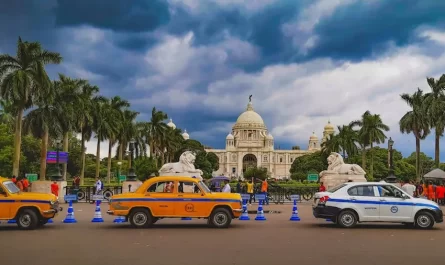Embarking on Solo Adventures: Must-Dos and Must-Don’ts
Have you ever thought about taking a solo journey? Travelling alone offers numerous perks, granting you the freedom to explore new destinations at your own pace, unencumbered by the constraints of waiting for or catching up with travel companions. Without the demands of others’ needs and schedules, you can relish the tranquility of beautiful scenery, leisurely meals, and extended moments at the landmarks that captivate you the most.
While the idea of solo travel may initially evoke some apprehension, particularly when venturing to a foreign country where familiarity is scarce, there are intelligent ways to ensure safety. Here are six recommendations to enhance your sense of security during solo travel, making the prospect of a solitary adventure more enjoyable and worry-free.
Traveling alone can be a transformative and enriching experience, offering unparalleled opportunities for self-discovery and adventure. However, navigating solo journeys comes with its unique set of considerations. Here’s a guide to the must-dos and must-don’ts when embarking on solo travel.
In the course of your journey, it’s tempting to capture moments and utilize phone apps like maps. However, refrain from constantly having your phone out on the street or walking with your head down. Stay vigilant and aware of your surroundings.
Today, solo travel is renowned for the freedom it provides, as there’s no one to answer to but yourself. Take in the scenery, appreciating every moment. Each interaction with a stranger becomes a valuable lesson. Cherish the locations that serve as poignant reminders of the distance you’ve ventured from home. Embrace the independence of solo travel while staying present and mindful of the unique experiences unfolding around you.
Must-Dos:
Research and Plan Thoroughly:
Prioritize comprehensive research on your destination. Understand the local culture, customs, and any safety considerations. Plan your itinerary with flexibility to accommodate unexpected discoveries.
Stay Connected:
Share Your Travel Plans With Family or Friends
Keep loved ones informed about your travel plans. Regularly check in and share your whereabouts. Consider using travel apps that allow real-time location sharing for an added layer of safety.
Always Share your travel itinerary, hotel reservations, and activity plans with a trusted family member or friend back home. Additionally, inform the hotel staff about your solo excursions, detailing your destination and expected return time.
For international travels, consider registering with the Smart Traveler Enrollment Program (STEP), a complimentary service for U.S. citizens and nationals abroad. Enrolling your trip with the nearest U.S. Embassy or Consulate through STEP ensures you receive crucial information on safety conditions at your destination, enabling informed decisions about your travel plans. This service aids the U.S. Embassy in knowing your whereabouts for emergency contact. It also facilitates communication for family and friends in case they need to reach you during your journey. Taking these steps enhances your safety and keeps your loved ones informed.
Trust Your Instincts:
Intuition is a powerful tool. Trust your gut feelings when making decisions. If a situation feels uncomfortable, it’s okay to step back and reassess.
Embrace Local Experiences:
Engage with the local culture. Try local cuisine, participate in community events, and interact with locals. These experiences often lead to meaningful connections and a deeper understanding of the destination.
Stay Aware of Surroundings:
Maintain situational awareness. Be mindful of your surroundings, especially in unfamiliar areas. Stay informed about local emergency contacts and the location of the nearest embassy or consulate.
Must-Don’ts:
Avoid Overpacking:
Resist the urge to overpack. A lighter, more manageable backpack will enhance your mobility and reduce the stress of carrying unnecessary items.
Don’t Overschedule:
While planning is crucial, avoid overscheduling your days. Allow for spontaneity and the flexibility to adapt to unexpected opportunities or changes in plans.
Don’t Share Too Much Personal Information:
Exercise caution when sharing personal information. While connecting with fellow travelers is part of the experience, refrain from disclosing sensitive details to strangers.
Avoid High-Risk Areas:
Research and identify areas with potential safety concerns and exercise caution. Avoid wandering into high-risk neighborhoods or poorly lit areas, especially at night.
Don’t Rely Solely on Technology:
While technology is a valuable travel companion, don’t solely rely on it. Carry physical maps, important contacts, and backup power sources to ensure you’re prepared in case of technological mishaps.
Safety
What precautions should you take when traveling alone?
During solo travel, steer clear of placing yourself in precarious situations, such as becoming excessively intoxicated and losing awareness of your surroundings. Without someone else to make decisions for you, it’s essential to remain vigilant and rely on your street smarts to navigate the road safely. Staying alert at all times ensures that you can make informed choices and maintain a secure and enjoyable solo travel experience.
Be prepared for emergencies by having a photocopy of your passport in case the original is lost or stolen. Store the copy in a secure and distinct location from your actual passport, and consider leaving another copy with a friend or family member back home. Exercise caution and keep your belongings close when using trains, buses, or other modes of transportation. Utilize the hotel safe to store extra money, jewelry, your original passport, and other essential documents. Taking these precautions enhances your ability to respond effectively to unforeseen situations and ensures the safety of your valuables during your travels.
When embarking on solo travel, a crucial consideration is to carry only the necessary cash with you. Safeguard the majority of your funds in your room or hotel. Additionally, to mitigate the impact of potential pickpocketing, distribute your money across different sections of your bag or pockets. This precautionary measure helps ensure financial security and peace of mind throughout your solo journey.
Make an Emergency Plan
While it’s ideal to never encounter medical issues, accidents, or incidents while traveling, being prepared for unforeseen events is a prudent approach. Prior to your journey, research the locations of nearby hospitals, police stations, and emergency facilities. For international travel, familiarize yourself with essential emergency phrases in the local language to seek assistance if necessary.
Before departing, consult your doctor or a travel clinic to ensure you have the required vaccinations. Pack an ample supply of prescription medications, along with face masks, hand sanitizer, and items to safeguard against mosquitoes and other potential disease-carrying pests. Conduct thorough research on the safety of drinking water, fresh produce, and dining establishments at your destinations to minimize the risk of illnesses during your travels. Taking these precautions contributes to a safer and more secure travel experience.
Travel Insurance
Safeguard both yourself and the investment you’ve made in your journey against unforeseen events. Trip cancellation and interruption insurance offer reimbursement for covered losses arising from factors like weather, natural disasters, specific illnesses, and other unforeseen issues. Additional travel insurance policies provide protection against unexpected medical and evacuation expenses, as well as losses incurred due to baggage delays, theft, and other unforeseen circumstances. By opting for travel insurance, you ensure financial protection and peace of mind, allowing you to navigate your trip with confidence and security in the face of unexpected challenges.
Before purchasing travel insurance, carefully review the policy to understand the coverage limits, exclusions, and specific terms. It’s advisable to choose a plan that aligns with your travel needs and destinations. Ultimately, the added protection and peace of mind offered by travel insurance make it a good idea for most travelers.
Solo travel is an empowering journey that opens doors to self-discovery and independence. By following these must-dos and must-don’ts, you can maximize the positive aspects of solo adventures while prioritizing your safety and well-being. Bon voyage!






